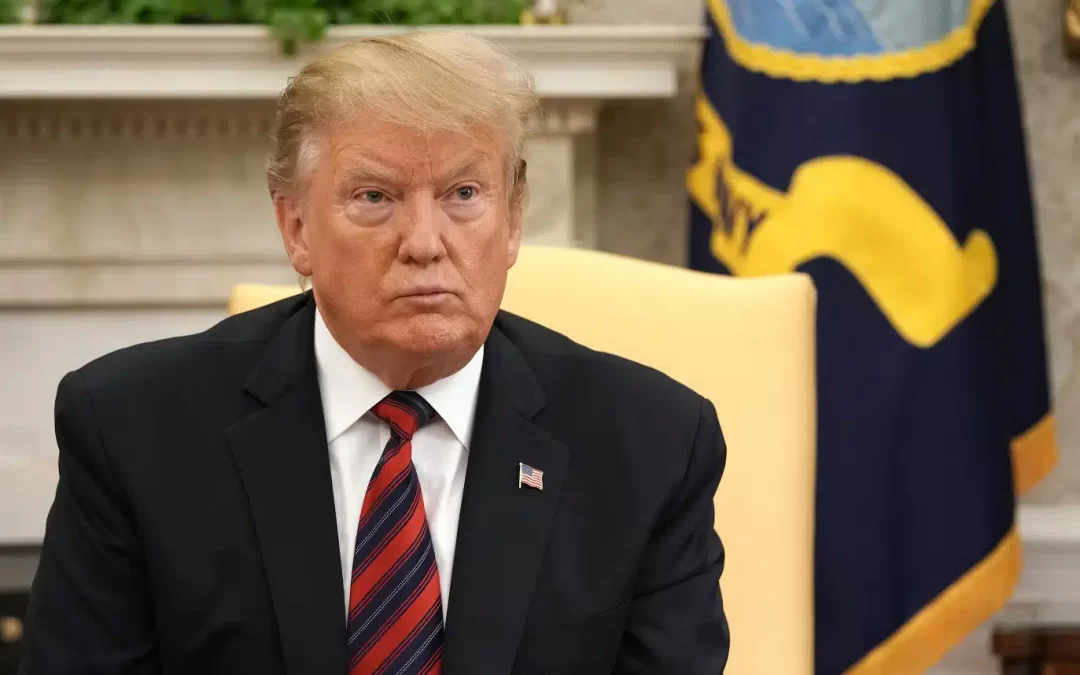The Colorado Supreme Court has removed former President Donald Trump from the state’s 2024 ballot, determining that he is an ineligible presidential candidate because of the 14th Amendment’s “insurrectionist ban.”
The verdict was 4–3.
The decision will remain on hold until January 4th when an appeal is considered. The nation hopes that the US Supreme Court will hear the case and reach a final decision by then, CNN reported.
The landmark decision will shake up the presidential race of 2024, even though it only applies to Colorado. Officials in Colorado’s election office have stated that a resolution is required by January 5, the statutory deadline for determining the Republican primary contenders.
Post-Civil War ratification of the 14th Amendment prohibits “engaged in insurrection” from holding public office for officials who pledge allegiance to the Constitution. Aside from its ambiguous language and lack of specific reference to the presidency, this provision has seen only two applications since 1919.
Democratic governors of Colorado appointed all seven justices to the state’s highest court. To remain on the bench, six of the seven judges went on to win statewide retention elections. The seventh has not yet been put to the vote since she was appointed in 2021.
Trump has condemned the 14th Amendment litigation as an abuse of the judicial process and denies any wrongdoing about January 6. He has entered a not-guilty plea to federal and state charges related to his efforts to reverse the 2020 election.
While running for the Republican nomination in 2024, Trump has criticized the lawsuits and claimed they are an effort to use the courts to prevent him from running again.
Before the unprecedented ruling, a lengthy list of parties, including over a dozen attorneys general from states controlled by Republicans, have filed briefs in a legal challenge to the constitutional eligibility of Trump to appear on Colorado’s 2024 ballot.
Following last month’s ruling against six voters arguing that Trump’s role in inciting the Jan. 6 attack on the U.S. was unfounded, the Colorado Supreme Court will hear oral arguments in the case this week. An insurrection clause from the Civil War bars him from the Capitol, Colorado News reported.
In her ruling from November 17, Judge Sarah B. Wallace stated that the 14th Amendment’s Section 3 does not apply to the presidency, even though she found that Trump “engaged in insurrection” according to that provision. This provision forbids someone from holding office again if they do so after taking an oath to support the Constitution.
Both parties quickly appealed the case to the state’s highest court. According to the plaintiffs, who have the support of the Washington, DC-based nonprofit Citizens for Responsibility and Ethics, Wallace’s conclusion that the president is not included in the list of “officer(s) of the United States” in Section 3 is “nonsensical.” Lawyers for Trump have asked the Supreme Court to examine several aspects of the case, including the conclusion that the former president was involved in an alleged insurrection.
Several non-affiliated parties have submitted briefs in favor of or against the case’s resolution with the Colorado Supreme Court. Plenty of other states have also filed similar challenges to Trump’s 2024 candidacy, and everyone is waiting for the federal government to decide the matter by the highest court in the land.
The plaintiffs’ arguments were rejected by the court in a similar case to the ones in Minnesota and Michigan, according to a group of nineteen states leaning toward the Republican party, spearheaded by Indiana Attorney General Todd Rokita.
“The 14th Amendment entrusts Insurrection Clause questions to Congress, not state officials or state courts,” the Nov. 29 brief states. “Allowing each state and its courts to determine eligibility using malleable standards would create an unworkable patchwork of eligibility requirements for the president.”
In a post on X, formerly Twitter, Rokita called challenges to Trump’s eligibility an “assault on our republic.”
In addition to Trump’s petition, fourteen state Republican parties, spearheaded by Kansas’s GOP, submitted a brief endorsing his eligibility to vote.
The state parties, in agreement with the Colorado Republican Party—which has been an intervenor in the trial alongside Trump—argue that Secretary of State Jena Griswold has no authority to unilaterally bar Trump because her role is merely “ministerial” in certifying the candidates chosen by the parties to the ballot.
Republican state secretaries from Missouri, Ohio, and Wyoming also submitted briefs claiming that Trump was “wrongfully” accused of insurgency.
“This is a classic case of judicial overreach, and the (lower court judge’s) ruling in this case has no basis in law,” Ohio Secretary of State Frank LaRose said in a statement. “The district court’s order relies on flimsy and circumstantial evidence to reach a flawed conclusion with far-reaching implications both for the president’s legal defense and for the broader democratic process of free and fair elections.”
Mary Estill Buchanan, a former Republican secretary of state of Colorado, appeared in an amicus brief in support of the plaintiffs’ case. She told the court, “This country and its institutions are at a crossroads.”
“(Trump) allowed a lust for power to supersede his own Oath of Office and over two centuries of American political precedent. Mr. Trump has sought at every turn to inject chaos into our country’s electoral system in the upcoming 2024 presidential election,” the brief said. “He should be given no opportunity to do so in the state of Colorado.”









